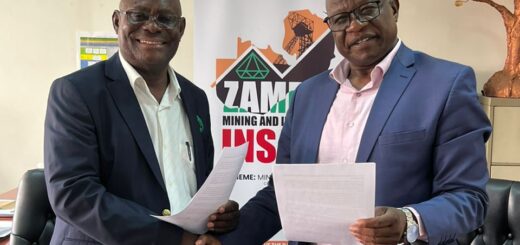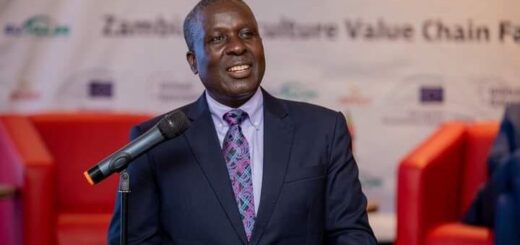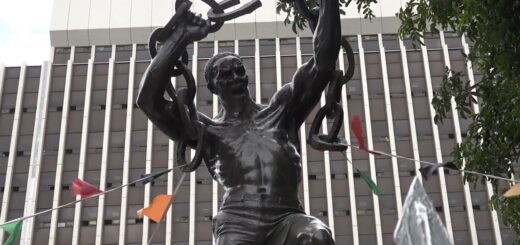Zambia at 60 and Still at Crossroads.
As Zambia approaches its 60th anniversary of independence, the mood in the nation is far from celebratory. October 24, 1964, marked the dawn of a new era, a promise of self-determination, economic prosperity, and social unity.
But now, as we close the last quarter of 2024, we find ourselves at a critical juncture—where the hope that defined our past is being overshadowed by the grim realities of the present.
The cost of living has soared beyond comprehension, and what was once a breadbasket for its people is now a nation where families struggle to afford three basic meals a day.
Inflation, once a beast that was tamed, has come roaring back, devouring earnings and eroding the ability of citizens to meet basic living standards. Today, a family of five requires over K10,000 monthly just to scrape by, a sum that only a privileged few can muster.
The ever-weakening Kwacha, which now sits at an unprecedented K28 to the dollar, exacerbates this situation, particularly for businesses reliant on imports. The currency crisis mirrors the larger crisis of confidence in our economic system.
At the heart of the matter lies our mismanagement of the mining sector, a critical source of foreign exchange. Despite its vast mineral wealth, Zambia has consistently allowed foreign interests to dictate terms, leaving the country at the mercy of external forces. With every passing year, it becomes clearer that we have failed to harness our natural resources for the benefit of the Zambian people.
Instead, we have allowed ourselves to be pawns in a global game of exploitation, and now our businesses and families are drowning in an economic quagmire. Contractionary monetary policies from the central bank, intended to stabilize the situation, have only deepened the crisis by making money scarce and expensive, squeezing the life out of an already struggling private sector.
Yet the economic turmoil is only part of the problem. The growing wave of tribalism—once a specter that threatened to divide us but was kept at bay—has reemerged with a vengeance.
Reverse tribalism, where those once marginalized now seek revenge under the guise of justice, is breeding resentment and undermining national unity. This toxic sentiment is festering, but no one is willing to tackle it head-on.
Leadership remains paralyzed, unwilling or unable to engage in the difficult conversations needed to heal these divisions.
Corruption, the cancer that has plagued Zambia for decades, continues to thrive despite the rhetoric of reform. Civil servants have turned public offices into personal fiefdoms where service delivery is a distant afterthought.
Government contracts, payments, and tenders are now the exclusive domain of those who know the right people or pay the right price. A 10-20% kickback is no longer a whispered secret; it is an open reality that has suffocated entrepreneurship and stunted economic growth.
Worse still, political allegiance, not competence, determines who gets the opportunities in this increasingly polarized system. If you’re not aligned with the political powers, your prospects dwindle to the private sector, where survival is equally grim.
Civil society, once the torchbearer of Zambia’s moral compass, has gone silent. Where are the voices that once stood firm against injustice, corruption, and bad governance? In a society that brands dissent as opposition, mistrust has filled the vacuum left by this silence. Civil society’s dormancy has allowed unchecked power to flourish, leaving ordinary citizens vulnerable.
Even the church, historically the last bastion of hope in times of moral decay, finds itself compromised. Once a prophetic voice that called out injustice, today many religious leaders are reduced to political sycophants, more concerned with securing favors than with the spiritual and social well-being of their congregations. The consequence is a society adrift, without the moral guidance it so desperately needs.
Our justice system, meant to be blind and impartial, has instead become a weapon in the hands of political elites. Instead of fostering justice, it is now used to settle scores, and this erosion of judicial integrity will haunt us for years to come.
As for our parliament, it no longer serves the dreams of the ordinary Zambian. What should be a house of deliberation and progress has become a stage for partisan maneuvering and backroom deals, far removed from the needs and aspirations of the people it is meant to represent.
Indeed, Zambia is at a crossroads, and the choices we make now will define our next 60 years.
Our leaders must rise to the occasion, or risk presiding over the slow collapse of a once-promising nation. We cannot afford to continue down this path of economic ruin, tribal division, institutional corruption, and political decay.
The hour is late, but there is still time to turn back from the brink. What Zambia needs is bold leadership, an unwavering commitment to transparency, and the courage to confront the difficult truths that have held us back for far too long.
As we reflect on 60 years of independence, we must also reflect on the kind of Zambia we want to leave for future generations. The time for action is now, for tomorrow may be too late.








